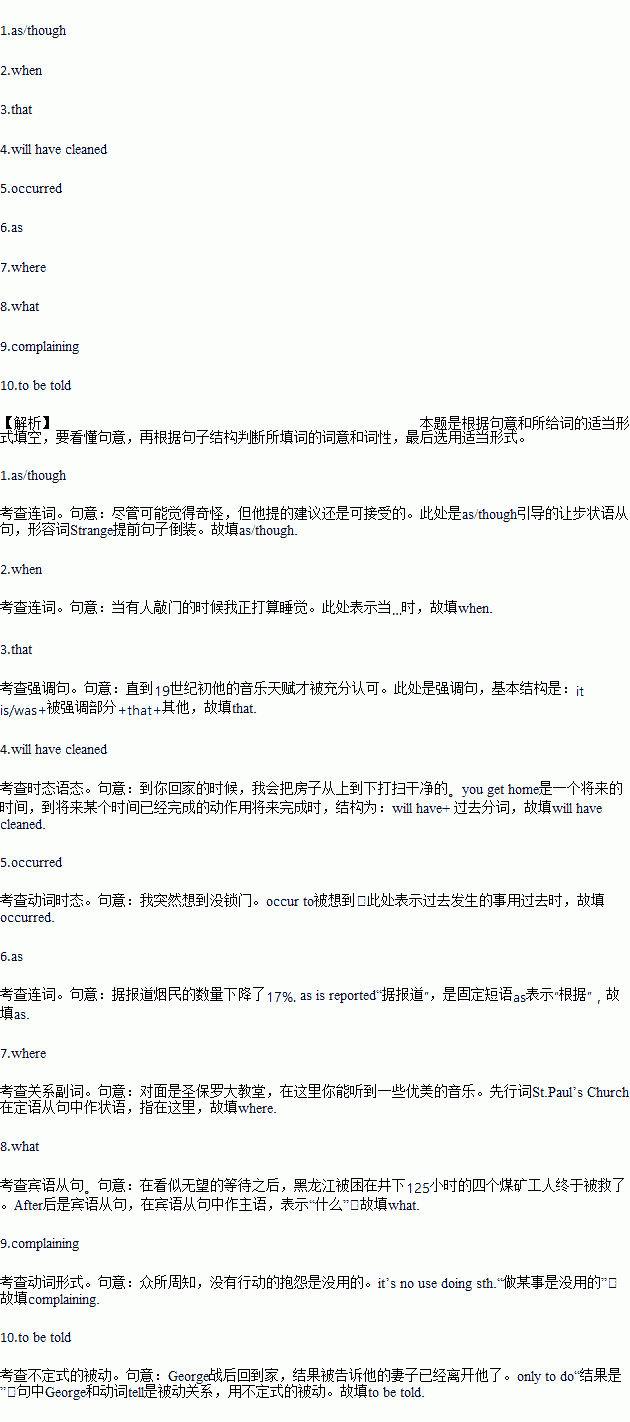题目内容
1.Strange _______ it might be,the suggestion he made is acceptable.
2.I was about to go to bed _________ there was a knock at the door.
3.It was not until the early 19th century ______ his musical gift was fully recognized.
4.By the time you get home I _______________ (clean)the house from top to bottom.
5.It suddenly ___________(occur) to me that I hadn’t locked my door.
6.The number of smokers, _______is reported,has dropped by 17 percent.
7.Opposite is St.Paul’s Church,___________ you can hear some lovely music.
8.After _____ seemed a hopeless wait,four coal miners trapped in the mine for 125 hours were finally rescued in HeiLongJiang Province.
9.As is known to us,it’s no use ___________(complain) without taking action.
10.George returned after the war, only __________(tell) that his wife had left him.
 名师指导期末冲刺卷系列答案
名师指导期末冲刺卷系列答案King's College Summer School
King's College Summer School is an annual training program for high school students at all levels that want to improve their English. The teachers of King’s College and other colleges in New York give courses. Trips to museums and culture centers are also organized. This year's summer school will be from July 25 to August 15. More information is as follows:
Application (申请) date ●Students in New York should send their applications before July 18, 2017. ●Students of other cities should send their applications before July 16, 2017. ●Foreign students should send their applications before July 10, 2017. | Courses Spoken English: 22 hours Reading and Writing: 10 hours ●American History: 16 hours ●American Culture: 16 hours |
Steps ●A letter of self-introduction ●A letter of recommendation ●The letters should be written in English with all the necessary information. | Cost ●Daily lessons: $200 ●Sports and activities: $100 ●Travels: $200 ●Hotel service: $400 ●You may choose to live with your friends or relatives in the same city. |
1.You can most probably read the text in _____.
A. a newspaper B. a travel guide
C. a textbook D. a telephone book
2.Which of the following is true about King's College Summer School?
A. Only top students can take part in the program.
B. Only the teachers of King' s College give courses.
C. King' s College Summer School is run every other year.
D. Visits to museums and culture centers are part of the program.
3.If you are to live with your relatives in New York, you will have to pay the school _____.
A. $200 B. $400
C. $500 D. $900
4.What information can you get from the text?
A. The program will last two months.
B. You can write to Thompson only in English.
C. You can get in touch with the school by e-mail or by telephone.
D. As a Chinese student, you can send your application on July 14, 2017.


 ect your life in the present.If you cannot forgive the past,then your future will be dark.
ect your life in the present.If you cannot forgive the past,then your future will be dark. ),并在其下面写出该加的词。
),并在其下面写出该加的词。